Israel’s national emergency medical service is preparing for a response from Hezbollah after the Israel Defense Forces (IDF) targeted and killed Fuad Shukr, a senior leader of the terrorist group, in Beirut.
The IDF strike Tuesday was in retaliation for a rocket attack over the weekend that killed 12 Israeli children and teens on a soccer field in Majdal Shams, a predominantly Druze town in Israel's Golan Heights.
Despite confirmations from the IDF and the U.S., Hezbollah only confirmed his death on Wednesday, the same day as Hamas' terror leader Ismail Haniyeh met a similar fate.
MASSACRE BY IRAN'S TERROR PROXY HEZBOLLAH COULD LEAD TO FULL-BLOWN WAR IN MIDEAST
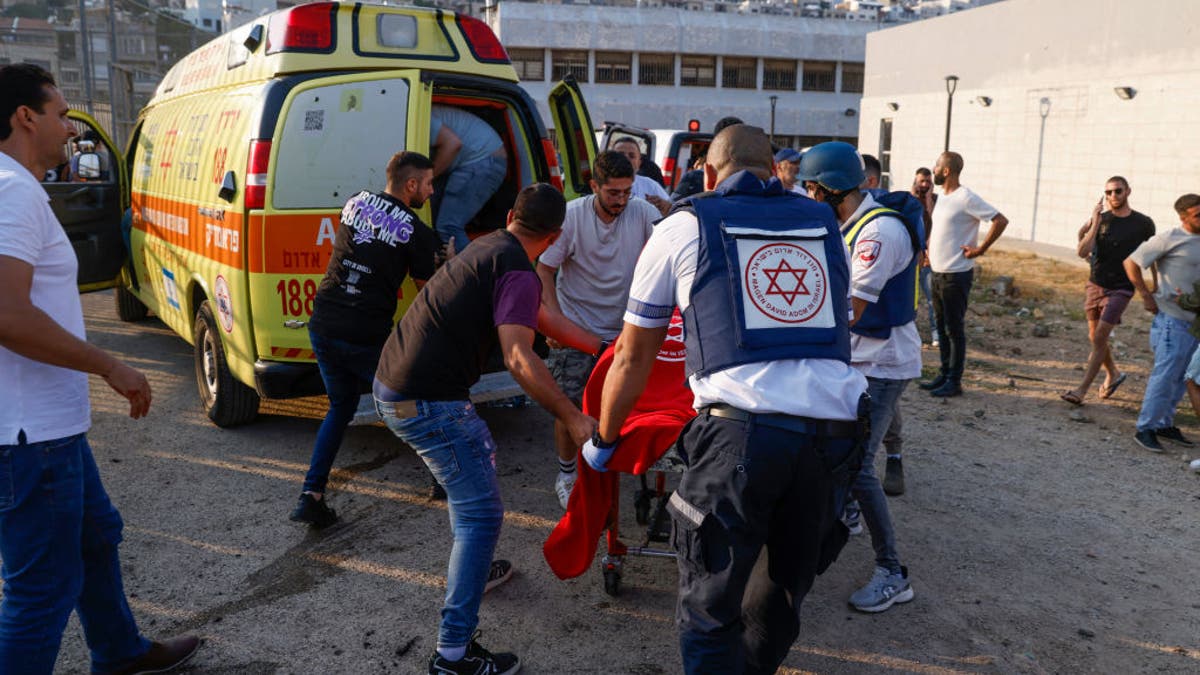
Israeli security forces and medics transport casualties along with local residents at a site where a reported strike from Lebanon fell in Majdal Shams village in Israel on July 27, 2024. (Photo by JALAA MAREY/AFP via Getty Images)
Aryeh Myers, a paramedic with Magen David Adom (MDA), told Fox News Digital in an interview that the emergency medical service is on high alert and has ambulances and volunteers ready to go should further attacks break out.
"So tonight, obviously we've been put, again, on high alert due to the incidents that have been happening in Lebanon," he said following the assassination of Shukr on Tuesday.
US EMBASSY IN LEBANON TELLS AMERICANS TO ‘LEAVE BEFORE A CRISIS BEGINS'
"We're always preparing for multi-casualty events, mass casualty events, whether that's terror attacks, whether that's war, whether that's earthquakes, whatever it might be."
Myers said since the Oct. 7 Hamas-led terror attack in southern Israel, where more than 1,200 people were killed and more than 250 were taken hostage, according to Israeli authorities, a new project was launched to give civilians training to provide an initial medical response in emergency situations.
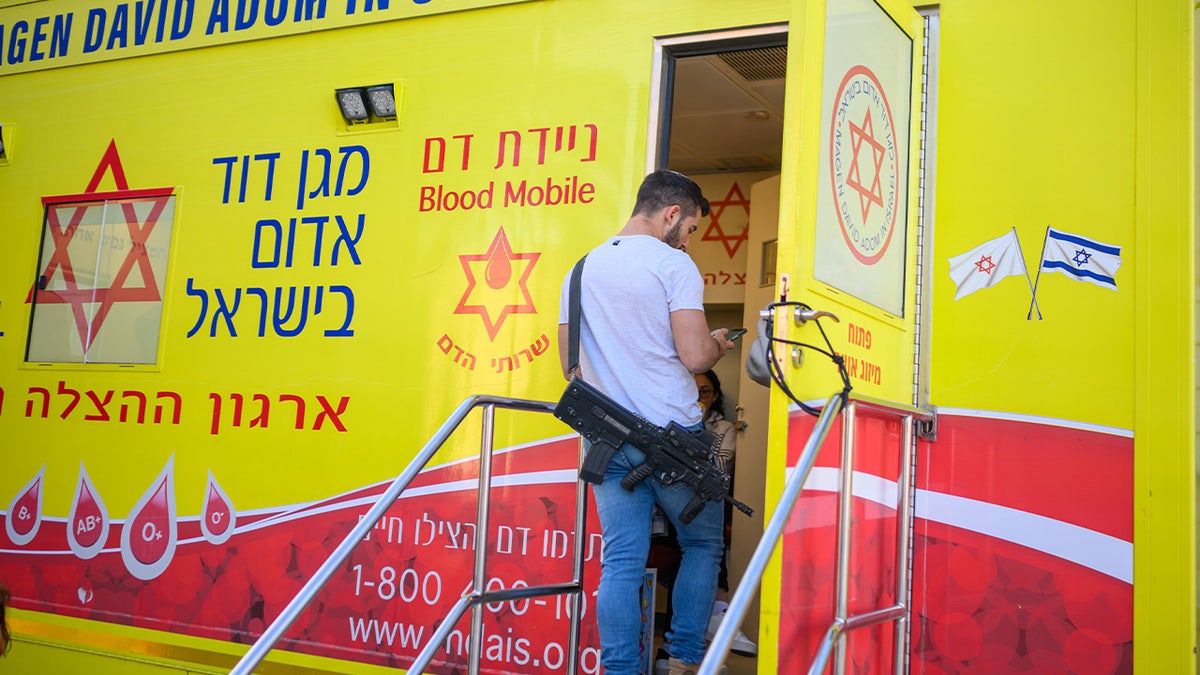
An off duty soldier waits to donate blood at a Magen David Adom mobile blood truck on March 11, 2024 in Jerusalem. (Photo by Alexi Rosenfeld/Getty Images)
The Magen Project, which translates to defense or protection, seeks to involve members of the community who can quickly respond to fast-moving events.
"We've had people throughout the war who have just come to do, again, some basic training with us to give them basic lifesaving skills, whether that's how to stop bleeding, how to do CPR, whatever it is," Myers told Fox News Digital.
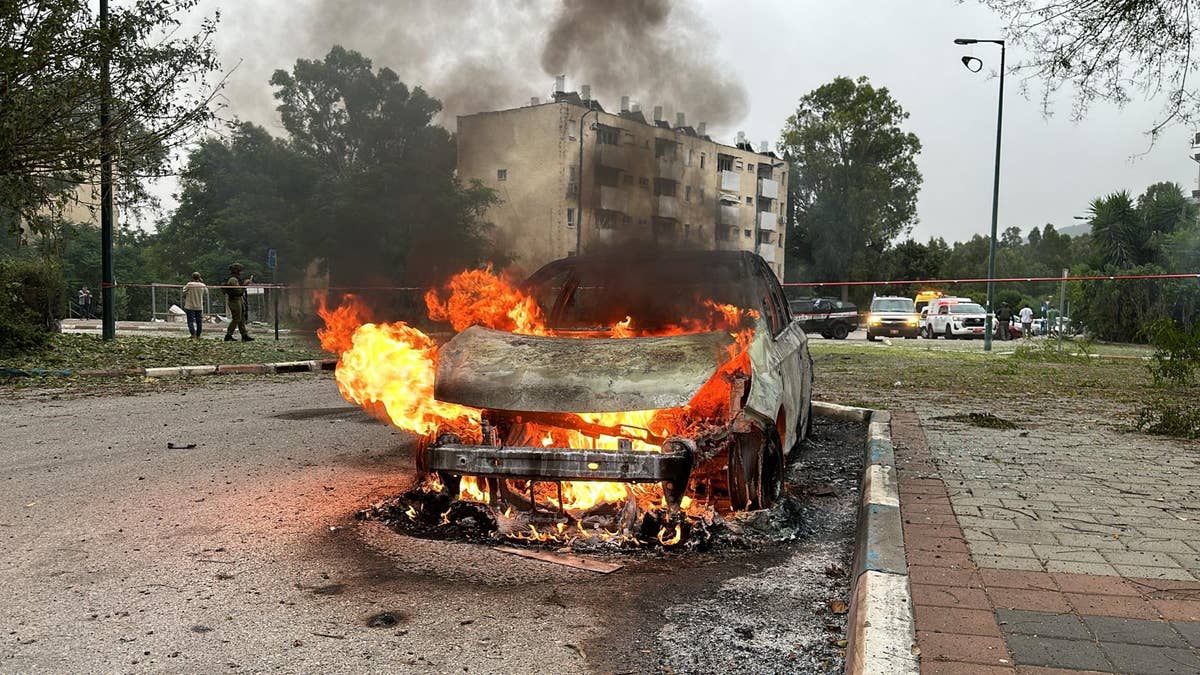
The aftermath of a Hezbollah rocket barrage in the northern Israeli city of Kiryat Shmona on May 10, 2024. (Photo by Erez Bar Simon/TPS-IL)
"So, should something happen close by, they'll be able to respond, and they respond with equipment that we provide for them, with training that we've trained them, with vehicles that we've provided as well, whether those are ambulances, rapid response vehicles, all sorts of different vehicles that allow them to reach the scene as quickly as possible, start treating the casualties even before the ambulances themselves have arrived."
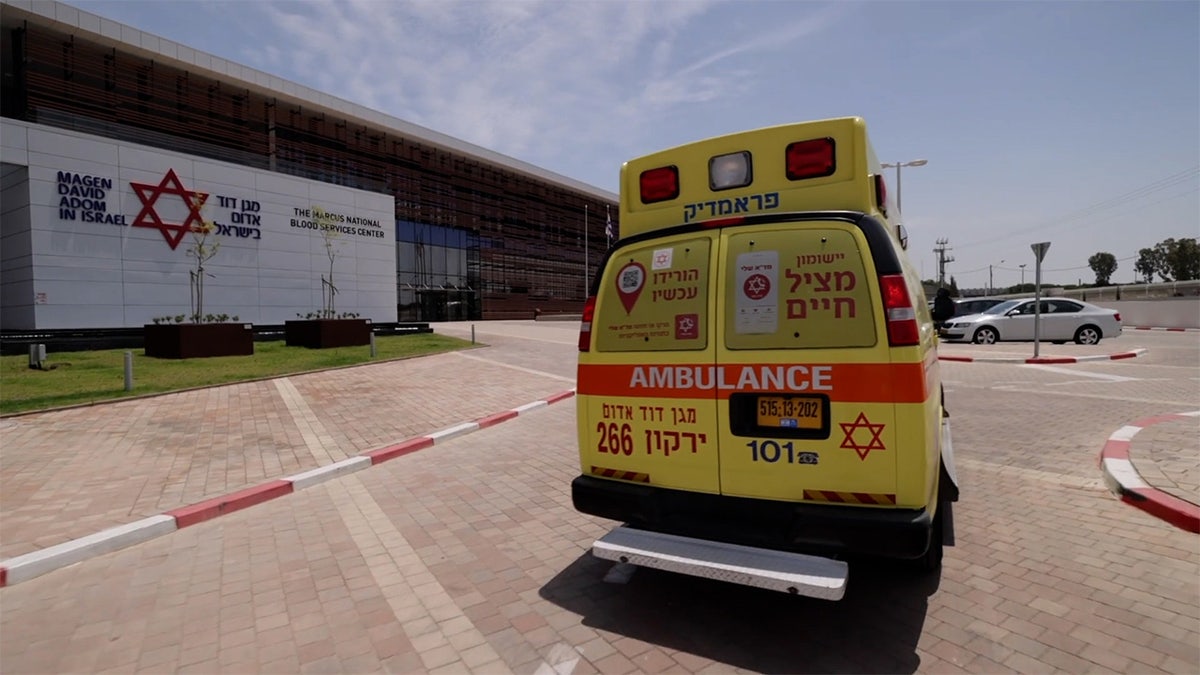
An ambulance with Magen David Adom, Israel’s national emergency medical service. (Credit: Magen David Adom)
REAL-LIFE AMERICAN COWBOYS RIDE IN TO HELP ISRAELI FARMERS UNDER SEIGE AFTER HAMAS TERROR ATTACKS
MDA, which Myers says has roughly 33,000 volunteers, makes sure that its emergency vehicles are manned 24 hours a day, seven days a week.
In the wake of Oct. 7, communities have stepped up their preparedness for future attacks. Doctors, nurses and EMTs have sought out further levels of training to deal with trauma patients.
Israel also just wrapped up a three-day national drill preparing for the possibility of a complete blackout.
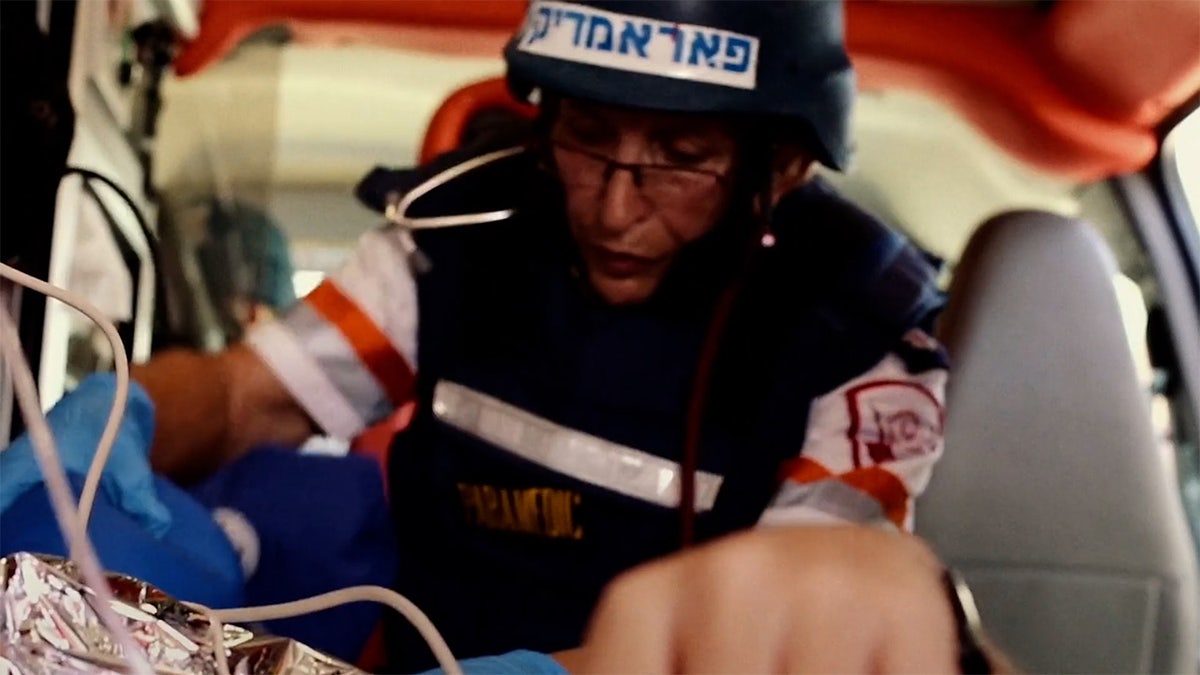
A volunteer receives training at Magen David Adom.

